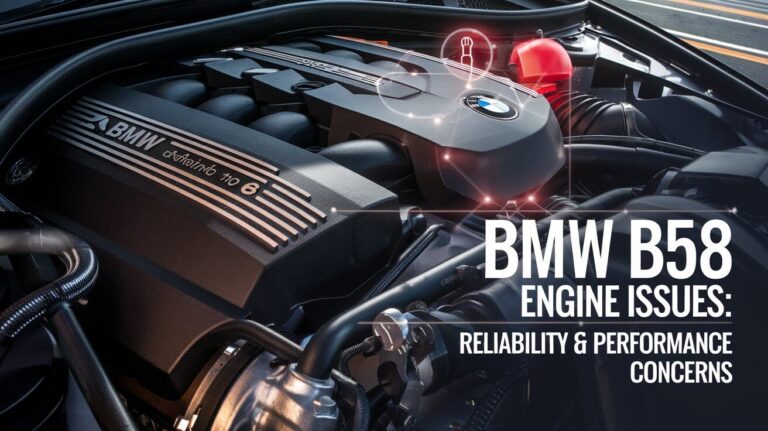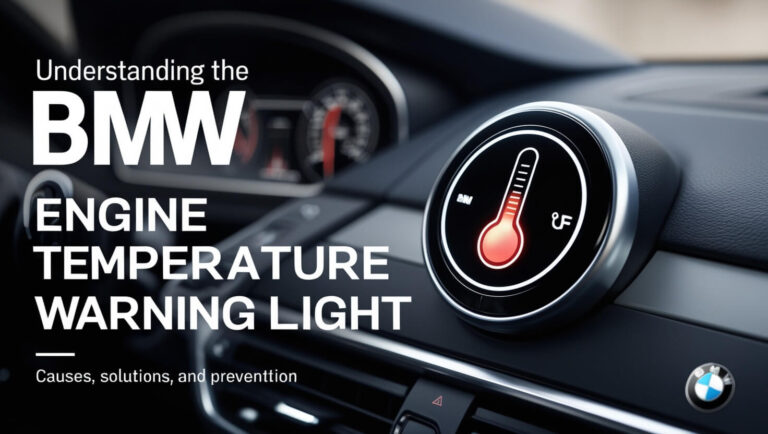
Is your BMW running hotter than usual? BMW overheating problems can stem from various issues, including coolant leaks, faulty water pumps, or malfunctioning thermostats. This comprehensive guide explores the causes, signs, and fixes for BMW engine overheating. We’ll help you understand why your beloved Bimmer might be getting too hot under the hood and what you can do about it.
Understanding BMW Engine Overheating
BMW engines are precision machines, designed to operate within specific temperature ranges. When these limits are exceeded, problems arise. But what exactly causes a BMW engine to overheat?
What Causes a BMW Engine to Overheat?
Several factors can lead to BMW overheating issues:
- Coolant system problems
- Faulty cooling components
- Engine oil issues
- Electrical system malfunctions
Each of these can disrupt the delicate balance of your BMW’s cooling system, leading to overheating.
Common Misconceptions About BMW Overheating
Many BMW owners believe that their cars are immune to overheating. This isn’t true. While BMWs are well-engineered, they’re not invincible. Regular maintenance is key to preventing overheating problems.
Another myth is that overheating only happens in hot weather. In reality, BMW engines can overheat in any climate if there’s an underlying issue.
Signs Your BMW is Overheating
Recognizing the symptoms of an overheating BMW can save you from costly repairs down the road. Let’s look at the warning signs.
Dashboard Warning Lights and Gauges
Your BMW’s dashboard is your first line of defense against overheating. Keep an eye out for:
- A red temperature warning light
- The temperature gauge creeping into the red zone
- A “Check Engine” light (in some cases)
These indicators are your BMW’s way of saying, “Hey, I’m getting too hot in here!”
Physical Symptoms of an Overheating BMW Engine
Beyond the dashboard, your BMW might show these signs of overheating:
- Steam or smoke from under the hood
- A sweet, syrupy smell (this could be leaking coolant)
- Unusual noises from the engine bay, like hissing or ticking
If you notice any of these, it’s time to pull over and let your BMW cool down.
Performance Issues Related to Overheating
An overheating BMW might also:
- Lose power suddenly
- Stall or shut off unexpectedly
- Have a rough idle or misfire
These performance issues are your BMW’s cry for help. Don’t ignore them!
Common Causes of BMW Overheating Problems
Now that we know the signs, let’s dig into what’s causing your BMW to break a sweat.
Coolant System Issues
The coolant system is your BMW’s primary defense against overheating. Problems here often lead to a too-hot engine.
Low Coolant Levels
Your BMW needs enough coolant to keep things cool. Low levels can result from:
- Leaks in the system
- Natural evaporation over time
- Improper filling after maintenance
Regular checks can catch low coolant before it becomes a problem.
Coolant Leaks
Leaks are a common culprit in BMW overheating problems. They can occur in:
- Hoses
- The radiator
- The water pump
- Gaskets and seals
Even a small leak can lead to big problems if left unchecked.
Contaminated or Wrong Type of Coolant
Not all coolants are created equal. BMWs need specific types of coolant to function properly. Using the wrong type or contaminated coolant can lead to:
- Poor heat transfer
- Corrosion in the cooling system
- Clogs and blockages
Always use BMW-approved coolant for your model.
Cooling System Component Failures
Your BMW’s cooling system has several moving parts. When one fails, overheating often follows.
Water Pump Problems
The water pump circulates coolant through your BMW’s engine. A failing pump can cause:
- Poor coolant circulation
- Coolant leaks
- Unusual noises from the engine bay
BMWs often use electric water pumps, which can fail without warning.
Thermostat Malfunctions
The thermostat regulates coolant flow based on engine temperature. A stuck thermostat can cause:
- Engine running too hot (if stuck closed)
- Engine running too cold (if stuck open)
- Fluctuating temperature readings
A malfunctioning thermostat is a common cause of BMW overheating problems.
Radiator Issues
Your BMW’s radiator is crucial for heat dissipation. Problems here can include:
- Clogged radiator fins
- Leaks in the radiator core
- Faulty radiator fan
A compromised radiator can’t cool your engine effectively, leading to overheating.
Other Potential Causes
While coolant and cooling system issues are common culprits, other factors can contribute to BMW overheating problems.
Engine Oil Problems
Engine oil doesn’t just lubricate; it also helps manage heat. Issues like:
- Low oil levels
- Old, degraded oil
- Oil leaks
can all contribute to overheating.
Head Gasket Failure
A blown head gasket is a serious issue that can cause:
- Coolant leaks into the engine cylinders
- Oil contamination
- Loss of compression
All of these can lead to overheating and significant engine damage.
Electrical System Issues
Modern BMWs rely heavily on electronics to manage engine temperature. Problems like:
- Faulty sensors
- Damaged wiring
- Computer malfunctions
can disrupt the cooling system’s operation, leading to overheating.
Diagnosing BMW Overheating Issues
Accurate diagnosis is crucial for addressing BMW overheating problems effectively.
DIY Checks for BMW Owners
While some issues require professional help, you can perform basic checks:
- Check coolant levels when the engine is cool
- Look for visible leaks under the car
- Inspect hoses for cracks or bulges
- Listen for unusual noises from the engine bay
These simple checks can often reveal the source of overheating problems.
Professional Diagnostic Methods
For more complex issues, professionals use:
- Pressure testing to find leaks
- Thermal imaging to detect hot spots
- Computerized diagnostics to check sensor data
These methods provide a comprehensive view of your BMW’s cooling system health.
Importance of Accurate Diagnosis
Misdiagnosing the cause of overheating can lead to:
- Unnecessary repairs
- Recurring problems
- Increased repair costs
Always get a thorough diagnosis before proceeding with major repairs.
Preventing BMW Overheating Problems
An ounce of prevention is worth a pound of cure, especially with BMW overheating issues.
Regular Maintenance Tips
Keep your BMW running cool with these maintenance practices:
- Change coolant according to the manufacturer’s schedule
- Replace the water pump proactively (often around 60,000-80,000 miles)
- Keep the radiator clean and free of debris
- Change engine oil regularly
Consistent maintenance can catch potential problems before they lead to overheating.
Monitoring Your BMW’s Cooling System
Stay ahead of overheating issues by:
- Checking coolant levels monthly
- Inspecting hoses and belts for wear
- Paying attention to temperature gauges while driving
- Addressing any unusual smells or noises promptly
Early detection of cooling system issues can prevent major overheating problems.
Addressing Minor Issues Before They Escalate
Don’t ignore small problems. Things like:
- Minor coolant leaks
- Slight temperature fluctuations
- Soft or spongy coolant hoses
can quickly turn into major overheating issues if left unaddressed.
Solutions for BMW Overheating
When your BMW does overheat, quick action is crucial.
Emergency Measures When Your BMW Overheats
If you notice signs of overheating while driving:
- Pull over safely and turn off the engine
- Don’t open the hood immediately; let the engine cool
- Check the coolant level (only when the engine is cool)
- If safe, add coolant or water to the reservoir
- Don’t restart the engine if you suspect a serious problem
These steps can prevent further damage to your overheating BMW.
Common Repairs for Overheating BMWs
Depending on the cause, repairs might include:
- Replacing the water pump
- Fixing coolant leaks
- Replacing the thermostat
- Flushing and refilling the coolant system
The specific repair will depend on the diagnosed issue.
When to Seek Professional Help
While some maintenance can be DIY, seek professional help if:
- You’re not comfortable working on your BMW
- The problem persists after basic troubleshooting
- There’s visible damage to engine components
- You suspect a major issue like a blown head gasket
Professional BMW technicians have the tools and expertise to handle complex overheating issues safely.
Long-term Effects of BMW Engine Overheating
Ignoring overheating can have serious consequences for your BMW.
Potential Damage to Engine Components
Prolonged overheating can cause:
- Warped cylinder heads
- Cracked engine block
- Damaged pistons and bearings
- Compromised gaskets and seals
These issues can turn a simple overheating problem into a major engine rebuild.
Impact on BMW Performance and Longevity
Even if you avoid catastrophic damage, overheating can:
- Reduce engine efficiency
- Increase fuel consumption
- Shorten the overall lifespan of your BMW
Addressing overheating promptly helps maintain your BMW’s performance and value.
Financial Implications of Ignored Overheating Issues
Neglecting overheating problems can hit your wallet hard:
- Minor repairs becoming major overhauls
- Increased fuel costs due to reduced efficiency
- Lower resale value due to engine damage
Investing in preventive maintenance and prompt repairs can save you money in the long run.
Frequently Asked Questions about BMW Overheating
Let’s address some common questions about BMW overheating problems.
Can I Drive My BMW If It’s Overheating?
No, you shouldn’t drive your BMW when it’s overheating. Continuing to drive can cause severe engine damage. Pull over safely and let the engine cool down.
How Often Should I Check My BMW’s Coolant Level?
Check your BMW’s coolant level monthly and before long trips. This simple habit can prevent many overheating issues.
Are Certain BMW Models More Prone to Overheating?
While all BMWs can overheat, some models have been known to have more cooling system issues. For example, some E46 and E90 series BMWs have had reported problems with electric water pumps.
How Much Does It Cost to Fix BMW Overheating Problems?
Costs can vary widely depending on the cause:
- A simple thermostat replacement might cost $200-$400
- A water pump replacement could run $800-$1,500
- Major engine work due to overheating damage can exceed $3,000
These are rough estimates; actual costs may vary based on your location and specific BMW model.
Can Weather Conditions Cause My BMW to Overheat?
While extreme heat can stress your BMW’s cooling system, properly maintained BMWs should handle hot weather without overheating. If your BMW overheats in hot conditions, it likely indicates an underlying issue.
Conclusion
BMW overheating problems can be a source of stress for any owner. But with the right knowledge and proactive approach, you can keep your Bimmer running cool and smooth. Regular maintenance, prompt attention to warning signs, and professional help when needed are key to preventing and addressing overheating issues.
Remember, your BMW is a precision machine. It deserves careful attention to keep it performing at its best. By staying vigilant and addressing overheating problems early, you can enjoy many miles of trouble-free driving in your ultimate driving machine.
Don’t let overheating issues leave you stranded. Keep this guide handy, stay on top of your BMW’s maintenance, and enjoy the road with confidence!






